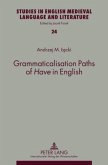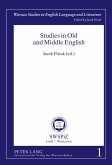Contrastive linguistics has a much longer history than is commonly assumed in the literature on the subject. This monograph is an account of contrastive studies conducted in England and documented in written materials originating between the middle of the fifteenth century and the end of the eighteenth century. These materials show that contrastive studies were conducted systematically, covered a large scope of language data in various languages, and occasioned a number of theoretical and methodological issues, anticipating those that have constituted the mainstream of modern contrastive studies. Among them were negative and positive transfer, with the accompanying efforts to counteract the former and utilize the latter, as well as the notorious difficulties with establishing the necessary tertium comparationis, though not expressly formulated, inevitably hovering in the wings, and occasionally prompting new methodological techniques.
Bitte wählen Sie Ihr Anliegen aus.
Rechnungen
Retourenschein anfordern
Bestellstatus
Storno








